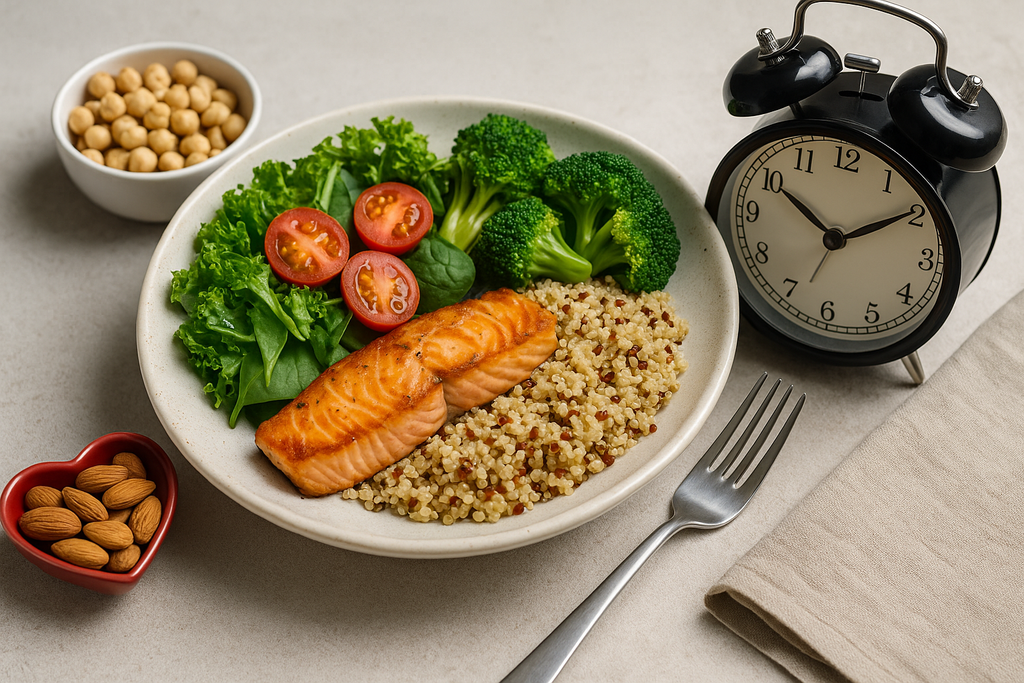News — cardiovascular wellness
Eating by the Clock: The Revolutionary Science of Meal Timing for a Healthy Heart
blood pressure meal timing cardiac nutrition cardiovascular wellness cholesterol and diet timing chrononutrition circadian rhythm eating early time-restricted feeding fasting for heart health healthy eating schedule heart health diet heart-healthy diet tips intermittent fasting heart health late-night eating risks meal frequency meal timing meal timing benefits metabolic health metabolism and circadian rhythm personalized nutrition time-restricted eating
We’ve long been told that what we eat matters for our health, but an emerging body of research suggests that when we eat may be just as important—especially for heart health. This concept, known as “chrononutrition,” is changing how scientists, doctors, and nutritionists think about the relationship between diet and cardiovascular well-being. Instead of simply focusing on calories and food quality, meal timing may hold the key to optimizing metabolism, reducing inflammation, and improving overall cardiovascular outcomes.
From intermittent fasting to time-restricted eating, studies are revealing that aligning our eating patterns with our body’s internal clock—the circadian rhythm—can have profound effects on blood pressure, cholesterol, blood sugar, and other heart-related risk factors. This article explores the groundbreaking science behind meal timing and offers practical guidance for using the clock as a tool for a healthier heart.
The Cardiovascular Benefits of Flaxseeds: A Comprehensive Guide
antioxidants in flaxseeds blood pressure management cardiovascular benefits of flaxseeds cardiovascular wellness flaxseed dietary fiber flaxseed health benefits flaxseed recipes flaxseeds lower cholesterol healthy heart diet heart health flaxseeds heart-friendly foods lignans and heart health natural cholesterol-lowering remedies natural supplements for heart health omega-3 benefits omega-3 fatty acids plant-based heart health reducing inflammation naturally superfoods for cardiovascular health
Flaxseeds, tiny seeds packed with nutrients, have emerged as a powerhouse for promoting cardiovascular health. Whether sprinkled on oatmeal, blended into smoothies, or baked into bread, these seeds are more than a dietary addition—they are a health-enhancing marvel. Known for their rich omega-3 content, dietary fiber, and lignans, flaxseeds support the heart in multiple ways.
In this guide, we’ll delve into the specific cardiovascular benefits of flaxseeds, exploring their role in reducing cholesterol, managing blood pressure, and enhancing overall heart function. By the end, you’ll understand why this superfood deserves a spot in your diet.


